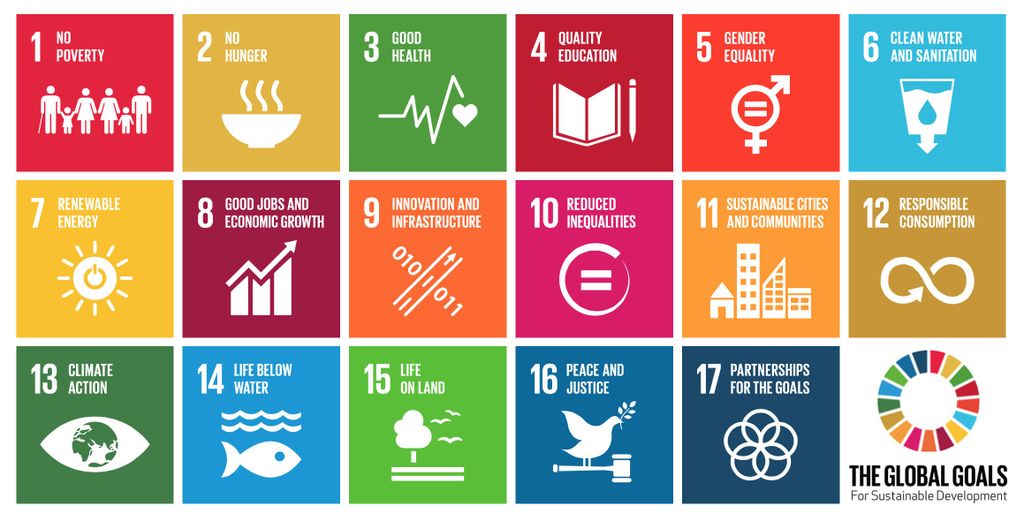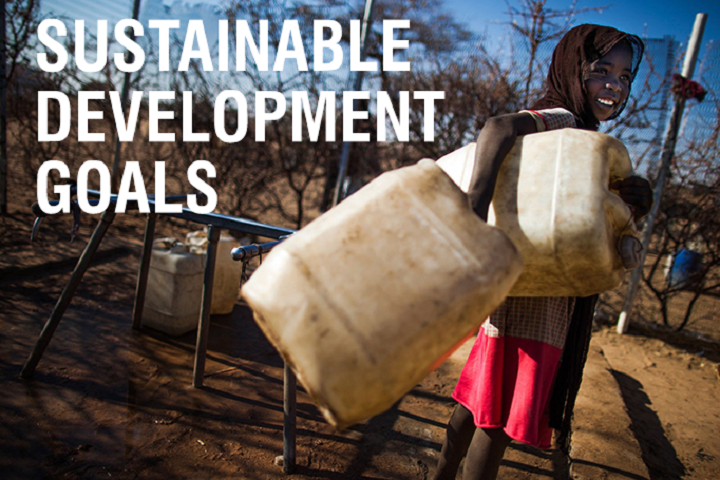
This September 25th, 2015, 193 world leaders will come together at the UN Headquarters in New York City to commit to a historic goal. Known as the United Nations Sustainable Development Summit, this event will see leaders from all over the world committing to a plan to end extreme poverty, social inequality, and fixing climate change all within the next 15 years.
Intrinsic to the Sustainable Development Summit are 17 goals. Known as The Sustainable Development Goals (SDG - or simply the Global Goals), these targets include providing clean and affordable energy to developing communities, ensuring gender equality, promoting economic development, ensuring safe drinking water, ending world hunger, and promoting universal education.
Although this may sound like a radical proposal, the Sustainable Development Summit is actually a continuance of the goals which were set by the UN Millennium Summit. Held in 2000, this conference resulted in the declaration of the Millennium Development Goals (MDG), a set of eight goals agreed to by the 89 members of the UN and at least 23 international organizations.
These included the eradication of poverty and world hunger, universal primary education, gender equality, the reduction of child mortality, improving mental health, combatting infectious diseases (HIV/AIDS, malaria, etc.), ensuring environmental sustainability and developing a global partnership for development. For each goal, specific targets were set, all of which were to be reached by target dates in 2015.

The SDGs include 17 specific areas with targeted goals, all of which are to be reached by 2030. Credit: globalgoals.org
To accelerate progress, in June 2005, the G8 finance ministers agreed to provide enough funds to the World Bank, the International Monetary Fund (IMF) and the African Development Bank (ADB), and to cancel $40 to $55 billion in debt owed by the most heavily indebted developing nations. This measure was intended to allow developing nations to redirect resources to programs for improving health and education and alleviating poverty.
As of 2013, the UN's progress in achieving these goals was declared as being uneven. Whereas progress had been made by many nations in some or all areas, others were not on track to accomplish any of them. For instance, between 2000 and 2015, the number of people in the world living without food security dropped from 15% of the population to 12.9%. While this represents some progress, the UN Food and Agriculture Organisation has stated that this number is still unacceptably high.
On the flip side, global poverty reduction has been quite impressive over the past 15 years and represents a major success for the MDGs. In 1990, the poverty rate in the developing world was 47%, which accounted for roughly 1.9 billion people. By 2010, that number had dropped to 15%, which meant that the MDG target of reducing global poverty by half had been reached five years ahead of schedule.

The MDGs made impressive gains since 2000, which included reducing global poverty to 12%. Credit: cesr.org
Recent statistics also indicate that global poverty (currently defined as those subsisting on less than $1.25 a day) has dropped even further since, to 12% (roughly 836 million) by 2015. This represents a 70% drop in global poverty since 1990. Because of this, UN General Secretary Ban Ki Moon hailed the MDGs as "the most successful anti-poverty movement in history".
Other successes include 43 million more children being enrolled in primary education, the reduction of new HIV infections by 40%, and clean drinking water being brought to an additional 2 billion people worldwide. This represents the achievement, in full or in part, of three key MDG goals - specifically Goal 2 (Achieve Universal Primary Education); Goal 6, Target 7 (have halted by 2015 and begun to reverse the spread of HIV/AIDS); and Goal 7, Target 10 (halve, by 2015, the proportion of people without sustainable access to safe drinking water and basic sanitation).
However, since 2000, a number of developments have taken place which have also complicated efforts to end global poverty and promote equality. These have included rising unemployment, higher food and energy prices, and volatile commodity prices that followed in the wake of the 2007-8 Financial Crisis. Frequent extreme weather events and natural disasters associated with Climate Change, political instability and civil strife (particularly in the Middle East) have also been complicating factors.
These obstacles have slowed down progress in reducing extreme poverty and hunger in some of the most vulnerable nations of the world. As a result of this, on September 25th, 2013, the UN General Assembly convened to adopt a post-2015 development agenda that would carry on the work of the MDGs, with the specific intent of building on their successes.
Support for the MDGs has also led to the creation of the Global Goals Campaign, a media effort that includes celebrities, activists and human rights advocates that aims to raise awareness for sustainable global development. Already, the campaign has attracted celebrities like Professor Stephen Hawking, Malala Yousef, Meryl Streep, Jennifer Lawrence, and Indian film celebrity Hrithik Roshan.
As is stated in The Global Goals promotional video (see above), there's "No Point Going Half Way". Given that the MDGs resulted in the halving of global poverty and made a big difference with the related issues of health and education, it only makes sense to keep going. Or as they put it, "with the New Global Goals, we can finish the job. We can be the first generation to end extreme poverty."
The Sustainable Development Summit will open with an address by his Holiness, Pope Francis, and will continue until September 27th. If all goes according to plan, a framework will be adopted and implemented, whereby 2030 will be the last year that human beings live in dire poverty, suffer from gross inequality, go to bed hungry, and die from preventable diseases.
Want to help make a difference? Then check out the Stop World Hunger, Yes We Will Do It! challenge, the Financial Revolutionaries Enhancing Education challenge. Or head on over to the Launch A Challenge page to start your own!
And be sure to watch video by Professor Stephen Hawking, speaking on behalf of The Global Goals:








